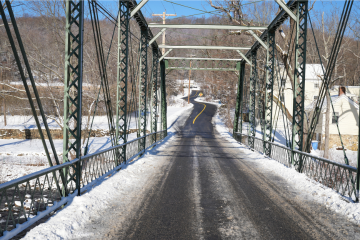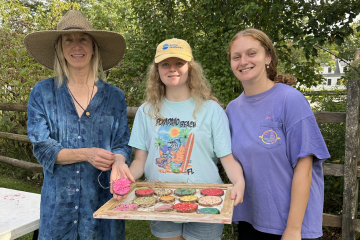Water is life – we cannot exist without it. Clean, fresh drinking water is essential for human health, but New Jersey’s supply faces serious threats from pollution.
As executive director of the nonprofit Raritan Headwaters Association (RHA), a Bedminster-based conservation group focused on protecting clean water, I want to remind residents that action in Trenton is needed to ensure a safe and healthy water supply.
The geographic area where RHA works – the watershed of the upper Raritan River – contains immensely valuable water resources. Two of the state’s largest water supply reservoirs, Round Valley and Spruce Run, are located here. And half of the watershed is within the Highlands region, the source of 70 percent of New Jersey’s drinking water.
Our water supplies are vulnerable to contamination from a wide range of pollutants, including coliform bacteria, nitrates, volatile organic compounds (VOCs), arsenic, and per- and polyfluoroalkyl substances (PFAS).
Earlier this year, the New Jersey Department of Environmental Protection (DEP) announced plans to strengthen protections for surface water – that is, the water in rivers, streams, lakes, and reservoirs. This includes developing numeric human-health criteria for PFAS (PFOA, PFOS, and PFNA) under the Surface Water Quality Standards (N.J.A.C. 7:9B). If adopted, these criteria will help set enforceable limits in discharge permits and cleanups, ensuring these chemicals are prevented from entering water supplies in the first place.
Among contaminants, PFAS are of particular concern. New Jersey has some of the highest PFAS levels in the country, with exceedances reported in over 100 municipal water systems. PFAS exposure has been linked to cancers, reproductive toxicity, hypertension during pregnancy, and immune system impacts. These persistent ‘forever chemicals’ do not break down easily and accumulate in people and the environment.
PFAS are used in a wide array of products, including nonstick pans, stain-resistant carpeting, water-repellant clothing, firefighting foam, and microwave popcorn bags. They’re also found in “biosolids” – treated sewer sludge used to make fertilizer. PFAS chemicals in biosolids get washed into waterways, and make their way into food crops and livestock.
The more we learn about PFAS, the clearer it becomes that comprehensive action is required. We urge the administration to move swiftly to officially adopt NJDEP’s draft standards limiting toxic PFAS and 94 other contaminants in drinking water sources. This is an opportunity to build a lasting legacy by ensuring every New Jerseyan has access to PFAS-free drinking water.
On Oct. 9–10, NJDEP hosted a PFAS Summit at NJIT in Newark, where experts discussed strategies to reduce PFAS at their source—such as limiting industrial use, controlling biosolids applications, and strengthening discharge regulations.
Another urgent and growing threat to clean water is microplastics—the nearly invisible plastic fragments that are now pervasive in our water, air, and food. A 2018 RHA study found that river stretches downstream from wastewater treatment plants contained significantly greater concentrations of microplastics than upstream areas.
Recent research from NJIT shows microplastics can also carry pathogens and toxic chemicals. These particles enter waterways through stormwater runoff, laundering of synthetic clothing, and breakdown of litter and packaging. More must be done to reduce plastic use, improve stormwater controls, and advance treatment technologies that prevent these particles from entering our water supplies.
New Jersey is in the midst of a heated election campaign. Those who are elected to statewide offices will face a multitude of issues, including making sure New Jerseyans live in a state with a clean and safe water supply.
Make sure you vote on Nov. 4, and support candidates who are committed to clean water protections and science-based solutions for PFAS and microplastics.
Want to know how your state elected officials have voted? Check out the “scorecard” compiled by New Jersey League of Conservation Voters at https://www.njlcv.org/scorecard.
Remember: Clean water is a basic human right. Stand up for it!



